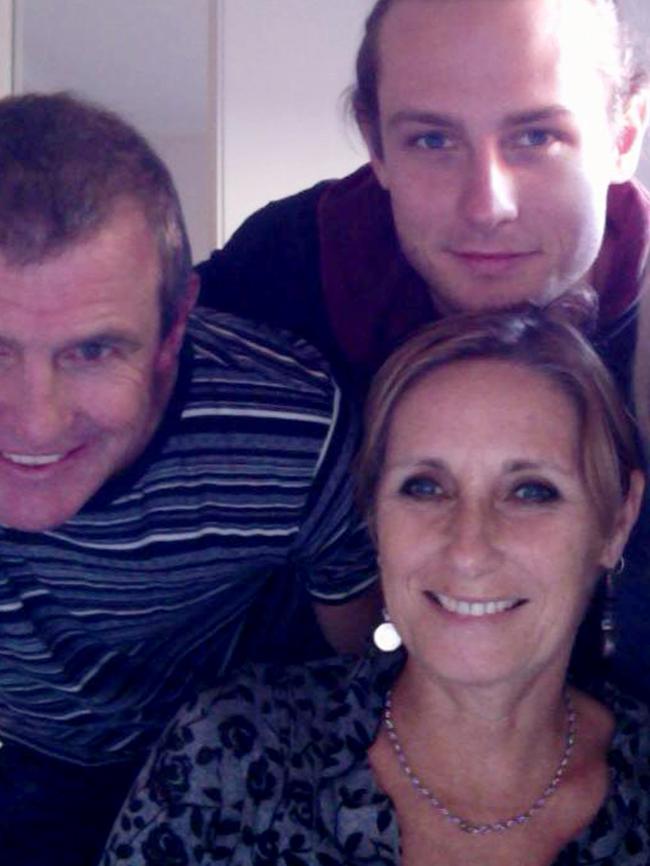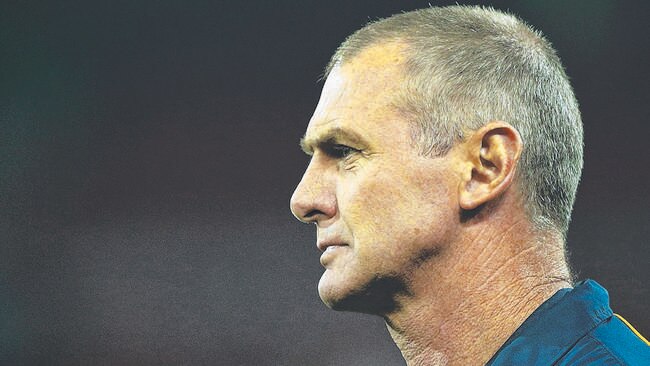Phil Walsh death: Cy Walsh pleads not guilty by reason of mental incompetence to murder of father and former Adelaide Crows coach
CY Walsh has pleaded not guilty by reason of mental incompetence to murdering his father, former Adelaide Crows coach Phil Walsh.
- SEAN FEWSTER ANALYSIS: What will happen next in the Cy Walsh case
- A TERRIBLE TRAGEDY: Crows coach Phil Walsh stabbed to death
- SOCIAL PROFILE: How Cy Walsh described his life on social media
CY Walsh has pleaded not guilty by reason of mental incompetence to murdering his father, former Adelaide Crows coach Phil Walsh.
The Adelaide Magistrates Court on Friday also heard that “a particular drug has been located” in Walsh’s belongings at the time of his arrest.
The discovery prompted prosecutors to ask for a longer than usual delay before Walsh appears in the Supreme Court, so the substance can be tested and identified by Forensic Science SA experts.
Prosecutors have alleged Walsh, 26, murdered his father at their home in the early hours of Friday, July 3.
Prior to his death, Phil Walsh spoke in an interview about wanting to “reconnect” with his son, saying his obsession with football made family life difficult at times.
In online accounts, Cy Walsh spoke of a seemingly idyllic lifestyle combining family time with overseas travel, and invited international visitors to “couch surf” in their home.

Previously, the court has heard prosecutors sought toxicology results from Walsh’s hair and that the case will touch on issues of mental incompetence and drug-induced psychosis.
Prosecutors also successfully applied to have key evidence in the case — made available to the media by a magistrate — suppressed from publication.
On Friday, Walsh appeared in court by video link from James Nash House, the secure mental health facility where he has been held since his arrest.
Dressed in a corrections issue bottle green tracksuit, Walsh did not speak at all during the brief hearing.
His not guilty plea, by virtue of mental incompetence, was entered on his behalf by his lawyer.

Lucy Boord, prosecuting, asked Walsh not appear before the Supreme Court any earlier than February next year.
“It has come to our attention that there is a particular drug that has been located in his belongings at the time of his arrest,” she said.
“Forensic Science SA is testing for it now, and we intend to put all that fresh information before the Supreme Court.”
Ms Boord also asked suppression orders on the case continue indefinitely.
However, the media applied for those orders to lapse upon the conclusion of Walsh’s first Supreme Court appearance, saying the higher jurisdiction would be best placed to assess what should and should not be made public at that time.
Magistrate Paul Foley amended the suppression order and remanded Walsh in custody to face the Supreme Court in February.
